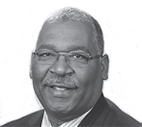“I Never Sleep Cause Sleep Is The Cousin Of Death”
– Nas (New York State of Mind)
Upon winning a second term as governor of Florida, Ron DeSantis declared in his victory speech that “Florida is where ‘Woke’ goes to die.” This after already having signed the “Stop W.O.K.E.” Act, designed to prevent Florida residents from being outspoken and challenging racism and discrimination. The Stop the Wrongs to Our Kids and Employees legislation provides harsh penalties, including firing educators and limiting state funding to colleges and universities. The bill also bans specific terms and phrases like “systematic racism” and “explicit bias” used in the discourse regarding racism and discrimination.
So how did a seemingly harmless word, such as woke, become such a highly politicized and misrepresented term? Contrary to popular belief that this is a relatively new term, the concept of woke has been around for years and has only recently been presented as something new. The word first entered the mainstream in a 1962 New York Times article by African American author William Melvin Kelley. The article, entitled, “If You’re Woke You Dig It; No mickey mouse can be expected to follow today’s Negro idiom without a hip assist. If you’re Woke, You Dig It,” was an essay in which Williams expounds on Black slang and how Blacks use this particular vernacular to counter White appropriation of Black language and culture.
The term describes a conscious awareness of the systems and barriers established to maintain social hierarchies. The word’s purpose is similar to the intended purpose of Black History Month in that both are rallying cries to African Americans to educate themselves and to promote awareness among the Black population regarding social, political, and economic factors that may adversely affect their lives. In addition, both concepts rely on a thorough understanding of history as a foundation and essential tool in the fight for empowerment and social justice.
As a result of this Mr. Kelly’s article, in 2014, the Oxford English Dictionary credited Kelley with coining the political term “woke,” However, again, in tracing the word’s origin further, it is known that woke is also used as a social construct that precedes the 1962 article.
In the article, “How Woke went from ‘Black’ to ‘Bad,’ ” Isheena Robinson of the Legal Defense provides a timeline of the term:
- 1923 — Marcus Garvey used the term, “Wake up Ethiopia. Wake up, Africa. Let us work towards the one glorious end of a free, redeemed, and mighty nation. Let Africa be a bright star among the constellation of nations.”
- 1938 — Blues singer Lead Belly used the phrase “stay woke” with his song “Scottsboro Boys.”
- 1940 — After learning that Black miners were earning less than their White counterparts, A Black member of the United Negro Miners Union stated, “we were asleep. But we will stay woke from now on.”
- 1962 — William Melvin Kelley published the New York Times article “If You’re Woke, You Dig It; No mickey mouse can be expected to follow today’s Negro idiom without a hip assist. If you’re Woke, You Dig It.”
- 1972 — Author Barry Beckman used the word “woke” in the play Garvey Lives.
- 2008 — Neo-soul artist Erykah Badu used the lyrics stay woke in Master Teacher.
- 2010s — The term began to be used as a catchphrase regarding awareness of social justice issues. Unfortunately, during this same period, the word became appropriated and politicized as a weapon against those fighting against racism and discrimination and fighting for inclusivity.
- 2017 — “Stay Woke” appeared as a category on Jeopardy.
- 2020 — The comedy series Woke appeared on Hulu.
- 2022 — Florida Governor Ron DeSantis signed the Stop W.O.K.E. Act.
This timeline highlights the importance of seeking knowledge and presenting history in its full context. The term woke is not new and was not designed to shame individuals or to make people feel guilty but rather to educate. From book banning to curriculum changes within our education systems, the irony is that the term woke was intended to empower and to pull back the curtain and see through the smokescreens, political theatre, and stunts that often present themselves when seeking social justice. It is hoped that we all remain awake to the world around us and continue to speak truth to power for the good of us all.


Recent Comments